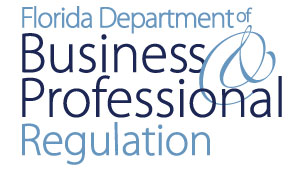BLOG
The changes that the Florida legislature enacted during its special session earlier this year call for new requirements for structural inspections for buildings that are three stories or higher. They also create new reporting requirements for condominium associations and cooperatives, and call for the enhanced funding of reserves for major structural repairs.
The process established under the new law begins with the reporting of some basic information for all affected buildings throughout the state. The division that oversees condominiums and cooperatives under the state’s Department of Business and Professional Regulation has been charged with establishing the reporting system and collecting the information.
 The state agency has now officially begun these efforts with its new Building Reporting Form, which can be submitted online and is now available at www.myfloridalicense.com/DBPR/condos-timeshares-mobile-homes/building-report/.
The state agency has now officially begun these efforts with its new Building Reporting Form, which can be submitted online and is now available at www.myfloridalicense.com/DBPR/condos-timeshares-mobile-homes/building-report/.
The requested information on the form is very basic, so associations will not have much difficulty with this initial step. It includes the number of buildings on the property that are three stories or more in height, the number of units in such buildings, the addresses of all such buildings, and the counties in which they are located. The form must be submitted by Jan. 1, 2023.
As prescribed under the new law, the DBPR will use this information to compile a list of the number of condo and coop buildings that are three stories or taller. That list, which must be searchable by county, will be posted next year on its website.
For all the affected associations that have not already done so, the posting of this online form due by year-end should serve as final reminder that now is the time to begin their due diligence in order to meet the state’s new requirements. Labor and materials shortages are causing major delays and disruptions in the construction industry, and the state’s new requirements are already increasing the demands for licensed and highly experienced engineers and contractors.
In addition to beginning the research and vetting process for the upcoming new inspections and possible repairs, associations should also ensure they are working closely with other highly qualified and reputable professionals of the upmost integrity. Experienced association property managers, insurance brokers/agents, financial professionals, and attorneys will also be necessary to guide Florida communities through the coming changes.
All the communities affected by the new law should take this opportunity to not just complete the basic new online form, but also to finalize their vetting and selection process for the engineers and other professionals who will guide them to compliance with the new requirements. By taking a proactive approach and avoiding procrastination, communities will be able to identify and select the very best experts to help them chart a course for success.

